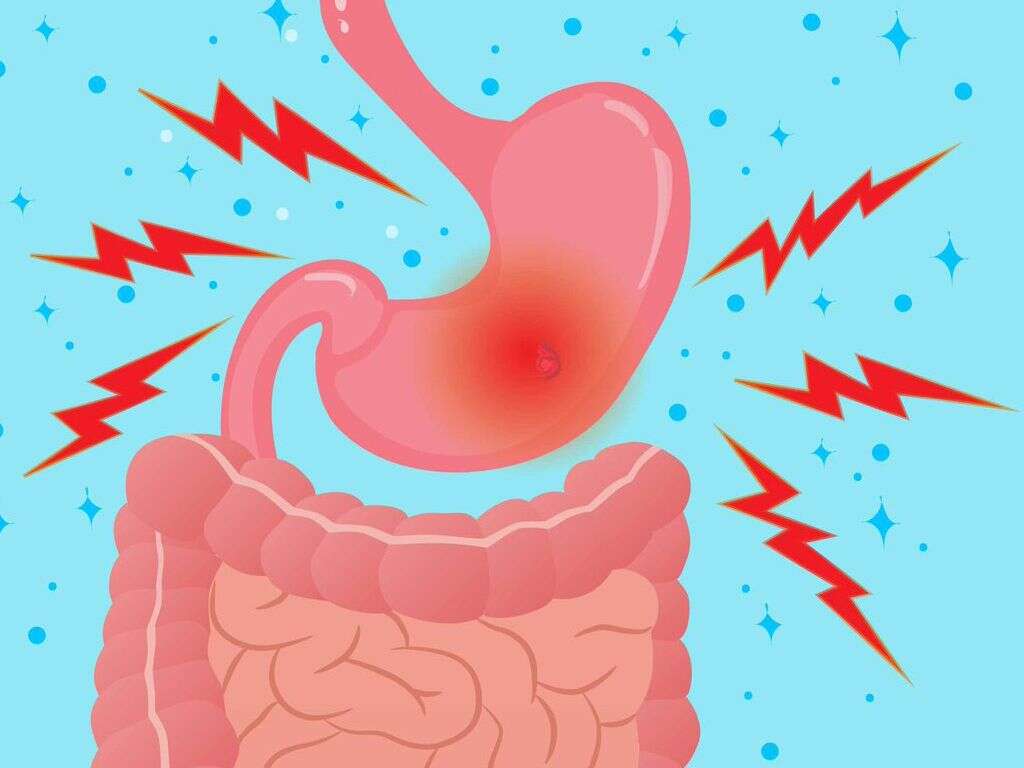What Is an Ulcer?
Do you have discomfort in your abdomen after eating or when you have an empty stomach? If so, you could have an ulcer.
Ulcers can affect how you feel most of the time, and they can cause you to get insufficient nutrients from your daily diet. Fortunately, ulcers are not too difficult to diagnose by a skilled doctor.
1. What Is an Ulcer?
An ulcer occurs when the mucosa lining of any bodily tissue is compromised or lost. Mucosal linings are essential for protecting tissues and keeping them healthy. When the mucosal lining is damaged, it can cause pain in the affected area. An ulcer can cause erosion into a vessel or artery that leads to bleeding. There are many different types of ulcers, including peptic, corneal, leg and mouth ulcers.
The most common types of ulcers are peptic ulcers, which include gastric, esophageal and duodenal ulcers. As their names suggest, these ulcers develop in various parts of the digestive tract. They can cause a variety of digestion issues, as well as discomfort during and after eating. These types of ulcers can become quite serious if they compromise vessels around them.
2. How Common Are Ulcers?
Ulcers are surprisingly common and can affect people in any age range. Doctors commonly see ulcer patients who are older as well as ulcer patients who are younger. Children are unfortunately not exempt to developing ulcers.
About one in every 10 people in the United States alone can expect to suffer from a peptic ulcer at some point during their lifetimes. Every year, more than 4,000,000 Americans experience peptic ulcers. Even if you don’t have a family history of ulcers, you can potentially develop one or more during your lifetime.

3. Where Can Ulcers Occur in the Body?
Ulcers can occur practically anywhere in the body. They most commonly occur in the stomach and intestines, but they can also happen in the legs, eyes, feet and many other places. Ulcers of the mouth are called canker sores and they are very common but rarely serious.
Ulcers in the stomach and intestines make it difficult to ingest adequate nutrition. For this reason, they can cause a variety of unwanted side effects.
4. What Are Symptoms of an Ulcer?
Ulcers are most common in the stomach and intestines. It is estimated that one out of every 10 people will eventually develop a stomach ulcer. The symptoms associated with such ulcers include discomfort between meals and when you drink or eat, stomach pain that’s so severe it wakes you from sleep, bloating and dull pain in the stomach or intestines, and feeling full very quickly.
Many people report that the pain from such ulcers is worse on an empty stomach and when there is excess stomach acid irritating the area. It can be challenging to eat a nutritious diet when you have ulcers that cause pain every time you eat.

5. What Causes Ulcers?
The most common causes of ulcers include Helicobacter pylori (H. pylori) infection and overuse of anti-inflammatory drugs. Stress ulcers tend to come on suddenly, and they are usually the result of intense physiological stress. Stress ulcers may also be caused by acidic foods.
If you have a family history of ulcers, it’s wise to avoid physiological stressors whenever possible. It’s also important to eat nutritious foods that help your body build and repair the mucosal lining.
6. What Are Risk Factors for Ulcers?
There are a variety of factors that can increase your risk of developing ulcers. Some of these risk factors include a history of blood clots, overuse of over-the-counter painkillers (including naproxen, aspiring and ibuprofen), H. pylori, smoking and heavy alcohol use.
The average person has control over some of these risk factors, but not all. Whenever possible, take steps to actively reduce your chance of developing an ulcer by making strategic lifestyle changes.

7. Are Ulcers Life-Threatening?
Some types of ulcers are less dangerous than others. However, any ulcer can potentially become life-threatening if it is not treated. Stomach ulcers, in particular, can be deadly if left alone to fester and worsen.
Some of the main complications associated with stomach ulcers include perforation of the stomach lining at the ulcer site and internal bleeding at the ulcer site. To prevent these types of complications, early diagnosis and treatment is very important.
8. How Are Ulcers Diagnosed?
If you suspect that you may have an ulcer, schedule an appointment with your doctor as soon as you can. Ulcers don’t usually get better on their own, so treatment is essential. When you arrive at your doctor’s office, your doctor will collect your medical history and perform a physical examination.
If an ulcer is suspected, diagnostic tests will likely be done. These may include looking performing an endoscopy to look directly at the ulcer. X-ray tests can also reveal ulcers in some locations of the body. Another type of diagnostic test includes drawing blood and looking for H. pylori antibodies. Your doctor may also collect a stool sample from you to look for evidence of an H. pylori infection.

9. Can Ulcers Be Prevented?
It may be possible to prevent ulcers from occurring if you’re very proactive and willing to make some lifestyle changes. For example, if you know there’s a history of ulcers in your family, you may want to talk with your doctor about alternatives to NSAID medications (such as acetaminophen). If you can’t stop using NSAID medications for your pain needs, ask your doctor about other protective measures you can take to prevent ulcers.
Other ways you can minimize your chances of developing an ulcer include quitting smoking, drinking alcohol in moderation or staying away from it completely, and minimizing physiological stress. These measures aren’t guaranteed to prevent ulcer development, but they can reduce your chances of developing one or more ulcers during your lifetime.
10. What Treatment Options Are Available for Ulcers?
You shouldn’t attempt to treat an ulcer on your own. To prevent complications, you should consult with your doctor to determine how serious your ulcer is and how important it is to receive treatment. Remember, ulcers can be dangerous if they are not treated. If an ulcer gets deep or large and affects the vessels around it, you could develop a life-threatening bleed.
Fortunately, you have many options available to you when it comes to treating ulcers. These include medications such as antibiotics, H2 blockers, proton pump inhibitors and bismuth. If medications don’t work, surgery may be required to remove a serious ulcer that keeps coming back and doesn’t respond to medications. Some supplements may also help relieve your symptoms, but it’s important to talk to your doctor about any ulcer supplements before you begin taking them. Since the supplement industry isn’t regulated very closely, you need to do your due diligence before taking any supplement for your ulcer symptoms.











